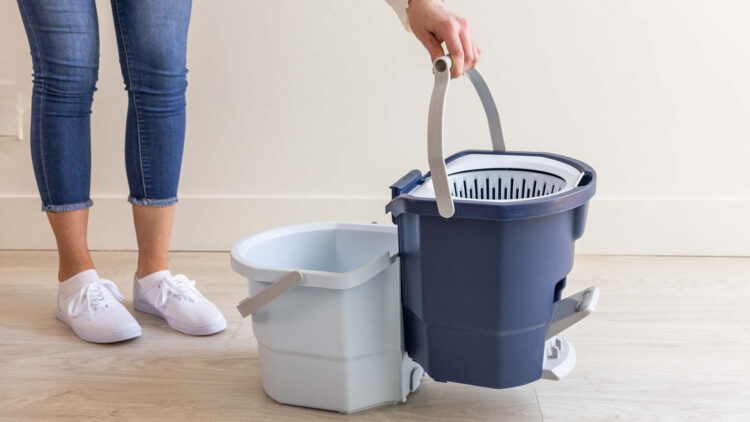There aren’t many things that are as fulfilling as mopping the entire house and discovering that it smells fresh, and even if you’re not a fan of cleaning, you probably would still agree about the smell part. However, is it possible to preserve that fresh scent without complicating or raising the cost of your routine? The answer is definitely yes, and the majority of what you need is most likely already in your kitchen, say cleaning experts Sara Aparacio from Homeaglow and Kathy Cohoon from Two Maids.
Simple ways to make your mop water smell better
Essential oils are among the most basic boosters. You can choose a calming aroma like lavender, a zesty and invigorating one, or even blend a few drops. Baking soda works very well with them. According to Kathy Cohoon, “when creating a cleaning solution for tile floors using ½ cup of baking soda and a bucket of warm water, essential oils can be included to give the mixture a nice scent.”
According to Sara Aparacio, each oil has a unique advantage: lavender creates a more peaceful vibe at home, tea tree oil has antibacterial and antifungal qualities, and lemon oil reduces grease.
Another simple solution is the common dish soap. “A few drops of dish soap can go a very long way as in it’s nature, it is designed to cut through grease, lift dirt, and break down sticky residues.” says Kathy Cohoon. A tiny amount of dish soap can leave the floor spotless and the room smelling wonderful because many of them have potent, pleasant fragrances.
Baking soda is useful for stubborn stains, marks from shoes, and places that retain odors, like pet nooks or hallways. A few tablespoons per gallon of water is what Sara Aparacio advises adding because “It will create a gentle scrubbing solution… perfect for deodorizing pet areas, entryways, or kitchen floors that tend to trap smells.”
Natural and sustainable tricks that smell amazing
Citrus peels are great choices that also cut waste if you’re into eco-friendly concepts. Peels from oranges, lemons, and mandarins can be recycled for household cleaning. “Use any leftover peels and boil them in water, strain, and then add the liquid to your mop bucket,” says Sara Aparacio. Citrus peels are an excellent method for recycling kitchen scraps because their natural oils help cut grease and leave a fresh, fruity scent.
The procedure is the same for herbal tea. Make a potent infusion with green tea, chamomile, or mint, allow it to cool, and then pour it into the bucket. According to Sara Aparacio “Herbal teas offer natural antibacterial properties and leave behind a subtle, earthy scent, making it another great sustainable and eco-friendly option.” As a result, the floor is clean and smells naturally.
“White vinegar is an effective cleaning agent because its acidic properties help to break down and dissolve grime, dirt, and mineral deposits on surfaces… and acts as a natural cleaning agent with antibacterial properties that deodorize by easily neutralizing odors.” according to Kathy Cohoon. One part vinegar to ten parts warm water is the basic mixture.
Castile soap is another popular choice: Just a teaspoon in a bucket of hot water is what Kathy Cohoon advises using: “Castile soap is beneficial because it is a cost-effective ingredient that can break up tough stains. To provide a fresh smell, the Castile soap solution can be enhanced by adding essential oils to achieve the desired scent.” Essential oils can be added to the solution for more soothing scent.
You can also add a little commercial cleaner to the bucket if you already have a trustworthy, but always make sure to read and follow the label, according to the expert.
